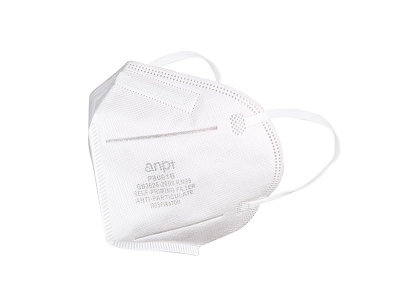News
Understand the latest news
As the COVID-19 pandemic continues to evolve, concerns about the effectiveness of protective measures, such as masks, against new variants like Delta, have become increasingly pertinent. KN95 masks, renowned for their high filtration efficiency and snug fit, play a crucial role in mitigating the spread of respiratory viruses, including variants of COVID-19.
Understanding KN95 Masks
KN95 masks are respirators that meet Chinese standards for respirators, similar to the N95 masks used in the United States. They are designed to filter out at least 95% of airborne particles, including virus-carrying aerosols and other fine particulates. The effectiveness of KN95 masks stems from their multi-layered construction of non-woven fabrics, which enhances filtration while maintaining breathability. This layered approach ensures that a wide range of particle sizes, down to 0.3 microns, are captured and prevented from entering the respiratory system.
High Filtration Efficiency
The primary measure of KN95 mask effectiveness lies in their high filtration efficiency. Studies have shown that KN95 masks effectively filter out respiratory droplets containing viruses, thus reducing the risk of inhalation and subsequent transmission. This capability extends to variants such as Delta, which is known to be more transmissible than earlier strains of the virus.
Protection Against Delta Variant
The Delta variant of COVID-19, first identified in late 2020, raised concerns due to its increased transmissibility and potential to cause breakthrough infections even among vaccinated individuals. KN95 masks have demonstrated effectiveness in preventing the inhalation of viral particles associated with Delta, primarily due to their tight fit and high filtration capacity.
Importance of Proper Fit and Usage
While KN95 masks offer high filtration efficiency, their effectiveness hinges on proper fit and usage. It is crucial to ensure that the mask forms a tight seal around the nose, mouth, and chin, minimizing gaps where airborne particles could enter or escape. This snug fit not only enhances protection for the wearer but also reduces the dispersion of potentially infectious respiratory droplets into the environment.
Global Usage and Recommendations
Throughout the COVID-19 pandemic, KN95 masks have been widely recommended for use by healthcare workers and the general public in many countries. Their effectiveness against variants, including Delta, has been underscored by global health authorities as part of comprehensive strategies to curb transmission. Countries with high vaccination rates and significant Delta variant circulation have relied on KN95 masks to provide an additional layer of protection in public settings and enclosed spaces.

Complementary Measures and Public Health Strategies
While KN95 masks offer robust protection, they are most effective when used alongside other preventive measures. These include maintaining physical distance, practicing hand hygiene, and, critically, getting vaccinated. Vaccination remains the cornerstone of efforts to control COVID-19 and its variants, complemented by the use of masks like KN95 to reduce the risk of transmission.
Conclusion
In conclusion, KN95 masks are highly effective against new variants of viruses, including the Delta variant of COVID-19. Their ability to filter out airborne particles with high efficiency, coupled with their snug fit, positions them as valuable tools in the ongoing fight against the pandemic. As variants continue to emerge, maintaining vigilance through the consistent use of high-quality masks like KN95 remains crucial to protecting individual health and community well-being.
By understanding and utilizing KN95 masks effectively, individuals contribute to collective efforts to mitigate the impact of COVID-19 variants, ensuring safer environments for all.